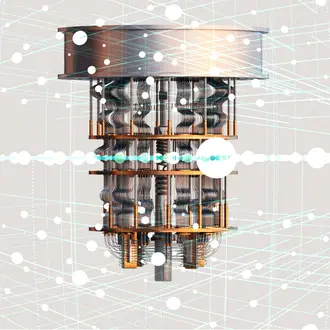Innovation
Close proximity is the key to knowledge spillovers among startups
As the in-office versus work-from-home debate continues, new MIT Sloan research makes the case for at least a little bit of face time.
Distance might make the heart grow fonder, but when it comes to information sharing, physical proximity is more desirable.
Recently published research from MIT Sloan finds that knowledge spillovers among startups in a coworking space are more likely to occur when those startups are within 20 meters of one another. Go beyond those 20 meters — about the width of an Olympic swimming pool — and the spillover “greatly reduces,” write MIT Sloan research scientist and his co-authors, Maria P. Roche and Alexander Oettl.
More specifically, the type of knowledge spillovers that “help in the selection of technologies from a large choice set and that lead to the integration of external knowledge” occur at very short distances, the authors state in their paper, “Proximate (Co-)Working: Knowledge Spillovers and Social Interactions.”
While the study’s focus is on startups and their decisions, the research also contributes to the ongoing discussion on how best to design workspaces for knowledge sharing, Catalini said.
Knowledge spillover and socializing
For their study, the researchers focused on startups in a large U.S. technology coworking space from August 2014 to January 2017. The space was designated as a startup hub for new ventures and consisted of 100,000 square feet spread across five floors and 200 rooms, with 251 startup tenants. According to the researchers, the hub was “relatively specialized in digital technologies, fintech, software development, and marketing tech.”

Entrepreneurship Development Program
In person at MIT Sloan
Register Now
Startups were used for the study because entrepreneurs work within “fast-paced and unpredictable environments,” the researchers write, meaning they need to be experimenting and adjusting in their early growth stages.
Technology choice served as the proxy for knowledge spillover because it “is a fundamental decision, as it sets the building block(s) for the future,” according to the paper. “In addition, technology adoption choices require a deep understanding of complex knowledge that may not be apparent from a web search and may be more quickly and efficiently transferred face to face.”
Using a combination of available floor plans, software that calculates measurements like the distance between rooms via a logical walking route, and the website BuiltWith, the researchers identified the geographic location of each startup and the web technology used by each. The researchers then examined the relationship between the two. Their finding: Close proximity is linked to a 2.5-percentage point higher probability of a startup adopting the same technology used by a peer organization that’s physically close by.
Physical proximity of 20 meters or less increases knowledge spillover in startup coworking spaces.
“Being more distant, however, greatly reduces the influence of peers,” the researchers write. “For technology adoption influence, startup pairs that are not within 20 meters of each other on the same floor behave as if they are on different floors altogether.”
The researchers also found that although startups that were similar to one another (e.g., gender composition, product market, size, and tenure at the hub) were more likely to socialize in the coworking hub than dissimilar startups, more knowledge spillover occurred when dissimilar startups socialized. This finding “may serve as guidance in the design of workplaces that promote knowledge exchange between noncollaborating entities,” the paper states.
And the researchers learned that startups located within 20 meters of an equal number of similar and diverse peer startups were more likely to receive more than $1 million in seed and other funding compared with startups that were not located in a balanced environment. However, “this boost to performance only occurs if startups socially engage with their environment,” the researchers write.
“Taken together,” Catalini and his co-authors state, “our findings provide fundamental insights for the design of workplaces that support knowledge production, entrepreneurship, and innovation.”
A space for entrepreneurship
Catalini’s findings add to a growing body of research on the factors and benefits of knowledge spillovers among collaborators. The concept was top of mind when the Martin Trust Center for MIT Entrepreneurship was redesigned in 2016.
Not only was the entrance updated with glass walls to encourage curious passersby to look and stop in, but the center’s lobby includes a coffee bar and convertible tables. Just off the gathering area is a garage-style loft space that can be used for a variety of speaking and social events. The center also has a “beehive” space designed for personal interactions, while the opposite side of the space has a “quiet car” area for people who need a more hushed environment for phone calls or discussions.
“We planned very carefully; we wanted to make every inch worth it,” said the center’s managing director, adding that the center wasn’t designed to be an academic space with only one purpose. “Entrepreneurship seeks hybrid vigor.”





